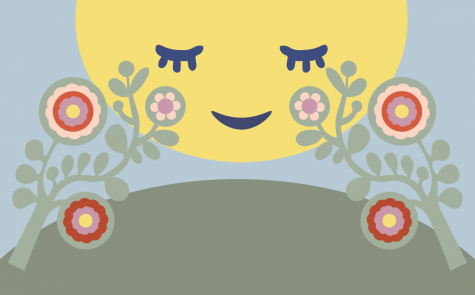Progress, not perfection: For everyday environmentalists, the real work to save the planet is in everyone doing what they can
July 29, 2021

Editor’s note: This article is one in a series of stories from the Communication Department’s award-winning Echo magazine, featured this summer on the Chronicle site.
_____________________________________
When working to combat climate change and be green consumers, the pressure of doing enough can be a challenge. The solution? Be imperfect.
“I think it’s really overwhelming as an individual, especially as a young individual, to feel like the weight of the climate crisis is on your shoulders,” says Megan McSherry, an environmental educator and influencer. “Every little thing that you do, you will end up feeling guilty for because it’s just not possible to live a perfectly sustainable lifestyle unless you have all the money in the world.”
McSherry believes every environmentalist, including herself, struggles with “eco-anxiety” and the guilt of feeling like they’re not doing enough, but tries to remember that she’s only one person. “There are big players, like corporations, that can do way more than me as an individual,” she says.
On her Instagram, TikTok and blog called Acteevism, McSherry provides resources, works with sustainable and ethical brands and encourages the practice of being imperfectly sustainable.
Blame for the ongoing climate crisis rests on the fossil fuel industry, says Dr. Tania Schusler, assistant professor in Loyola University Chicago’s School of Environmental Sustainability. She also criticizes politicians who block important climate policies.
In 2017, the Carbon Disclosure Project’s Carbon Majors Report found 100 fossil fuel producers, including Shell and ExxonMobil, were “linked to 71% of industrial greenhouse gas emissions since 1988.”
While consumers say they want to hold big companies responsible, when it comes to buying sustainable products, only a quarter actually do so, according to the Harvard Business Review. The main reason consumers don’t follow through is the added expense of these products, according to global management consulting firm Kearney.
But sustainability doesn’t have to be costly, McSherry says.
“There still is this huge misconception that a sustainable lifestyle is expensive, and it’s not accessible and it takes so much effort,” she says. For her, sustainability is about saving money and using what she already has.
McSherry recommends starting small to create long-lasting habits, like bringing reusable utensils or cups everywhere, and then building up from there.
When you do need to buy something, consider secondhand items or buy from brands that value sustainability in the long term.
Cloina, owner and designer at her self-named Chicago-based fashion brand, makes contemporary garments out of secondhand items to give them new life. “I think it really comes down to the consumer having more knowledge of how the garment was made, where it was made, what that process was, how many gallons of water were used to make it,” she says.
McSherry follows the philosophy of “progress, not perfection.” She references a quote from chef Anne-Marie Bonneau that’s become a pillar of the zero waste community: “We don’t need a handful of people doing zero waste perfectly. We need millions of people doing it imperfectly.”
“I would encourage people to not feel like you have to do everything all at once. Because you’re going to get frustrated and you’re going to get burnt out and you’re just not going to want to do anything anymore,” she says. “And we need everybody doing the little things that they can.”
Ready to take action?
Here’s how to be an environmentalist who goes beyond buying a reusable straw
1. Invest in corporations that are working to save the Earth — whether that be purchases, banking or otherwise. Looking for a new bank, some sweatpants or an investment opportunity? Search for companies and brands whose values align with your own.
2. Contact your representatives and encourage them to implement environmental policies. (Do the same with companies you love — consumer demand drives the market.)
3. Learn about systems of oppression in the environmental movement and how climate change disproportionately impacts communities of color. Recommended resources: The NAACP Environmental and Climate Justice Program, Grist’s Temperature Check podcast, “Waste: One Woman’s Fight Against America’s Dirty Secret” by Catherine Coleman Flowers
4. Follow these educators and organizations on Instagram or websites to get started: @queerbrownvegan/queerbrownvegan.com, @intersectionalenvironmentalist/intersectionalenvironmentalist.com, @pattiegonia







